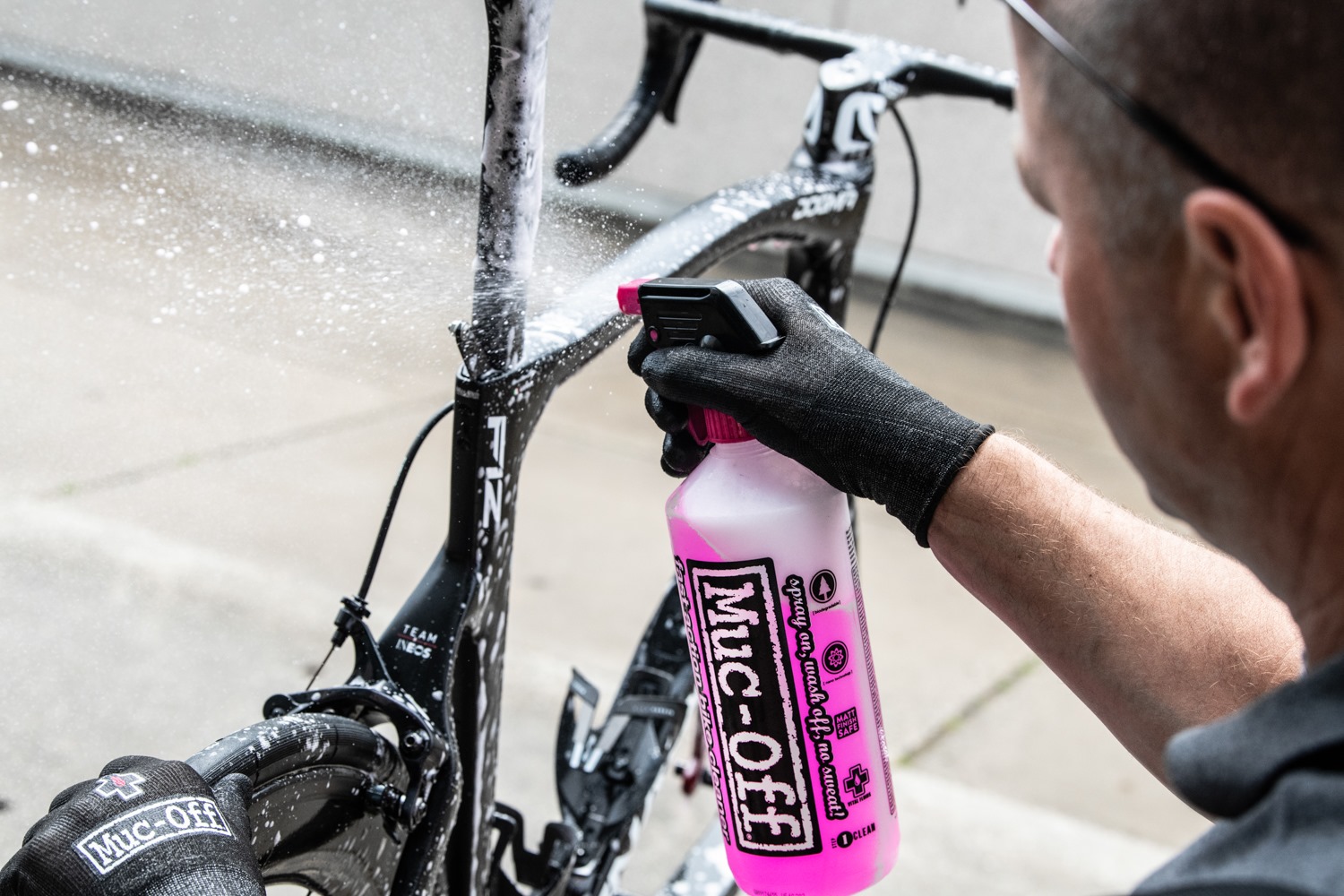Muc-Off donates to Marine Conservation Society having failed recycling targets
The brand's admin error saved it over £5,800 but it will donate more than £7,600 to charity


The latest race content, interviews, features, reviews and expert buying guides, direct to your inbox!
You are now subscribed
Your newsletter sign-up was successful
Muc-Off has made a donation to a marine conservation charity, following a failure to comply with recycling requirements set by the Environment Agency.
The brand has given £7,669 to the Marine Conservation Society, following errors made between 2012 and 2016, inclusive of 2016.
Muc-Off said in a press release: "Although the company has been recycling waste and packaging from the HQ for over a decade, there was a period from 2012 to 2016 when - as a small family business - it was unaware that once its turnover reached a certain threshold it had to register for a packaging recovery scheme."
The threshold affects any company with a turnover of £2 million or more, handling more than 50 tonnes of packaging per year must ensure a certain percentage is recycled.
Muc-Off saved £5,899.72 via its non-compliance. It has admitted two offences under the Producer Responsibility Obligations (Packaging Waste) Regulations set in 2007: failing to register and failing to take reasonable steps to recover and recycle waste packaging.
Muc Off's payment to the Marine Conservation Society is an enforcement undertaking - a voluntary offer made by the offender to address the cause and effect of their offence.
Earlier this month, it also launched 'Project Green', unveiling a range of new eco-driven changes to its business. The Dorset based brand is aiming to cut down on over 30 tons of plastic by 2023. Other measures include making its M094 spray PTFE-free and biodegradable, and commissioning a C02 impact report on its No Puncture Hassle Sealant.
The latest race content, interviews, features, reviews and expert buying guides, direct to your inbox!
It has also launched a 'Refill & Recycle' scheme, with dealers within its network offering refill stations - this is forecast to save over 90,000 plastic bottles from being produced each year. Back in 2012, Muc-Off introduced its Concentrate range, to reduce single use plastic.
Alex Trimnell, Muc-Off managing director said: “Managing a fast-growing family business and ensuring we are always up-to-date with ever-changing regulations is a challenge, but one I whole-heartedly commit to, especially when it concerns protecting the playground that our business depends on.
"In relation to the packaging recovery scheme, as soon as we realised we had not registered, we made sure we signed up to it as a priority, as well as offsetting the error by donating to the Marine Conservation Charity.”
Tessa Bowering, for the Environment Agency, commented: "The Marine Conservation Society is an appropriate recipient of this payment because most of the plastics washed up on beaches comes from packaging."
"The money will be used to help fund the society’s Beach Clean Project."
Muc-Off is now registered with the recovery scheme, and meets criteria.
Michelle Arthurs-Brennan the Editor of Cycling Weekly website. An NCTJ qualified traditional journalist by trade, Michelle began her career working for local newspapers. She's worked within the cycling industry since 2012, and joined the Cycling Weekly team in 2017, having previously been Editor at Total Women's Cycling. Prior to welcoming her first daughter in 2022, Michelle raced on the road, track, and in time trials, and still rides as much as she can - albeit a fair proportion indoors, for now.
Michelle is on maternity leave from April 2025 until spring 2026.
